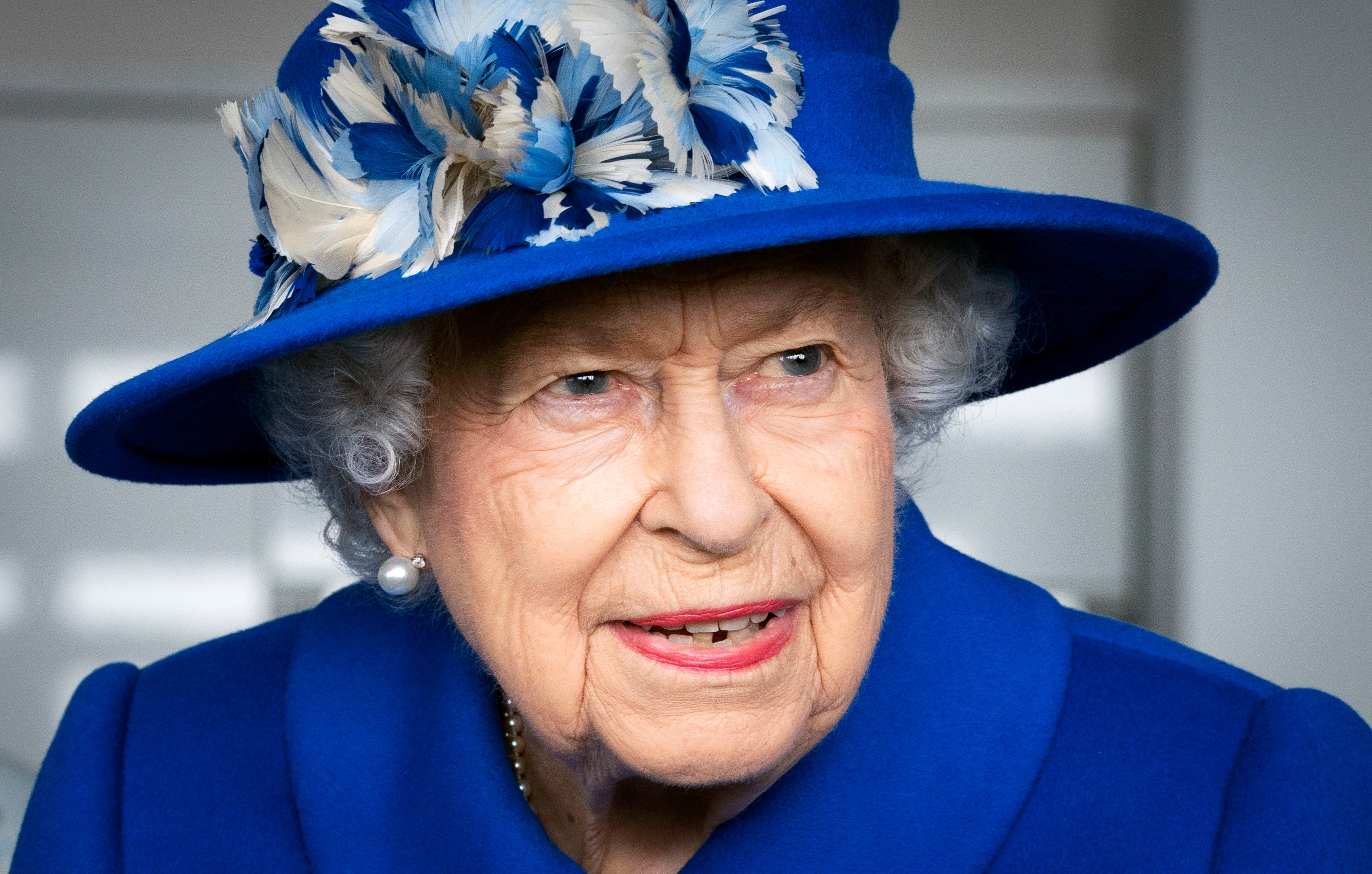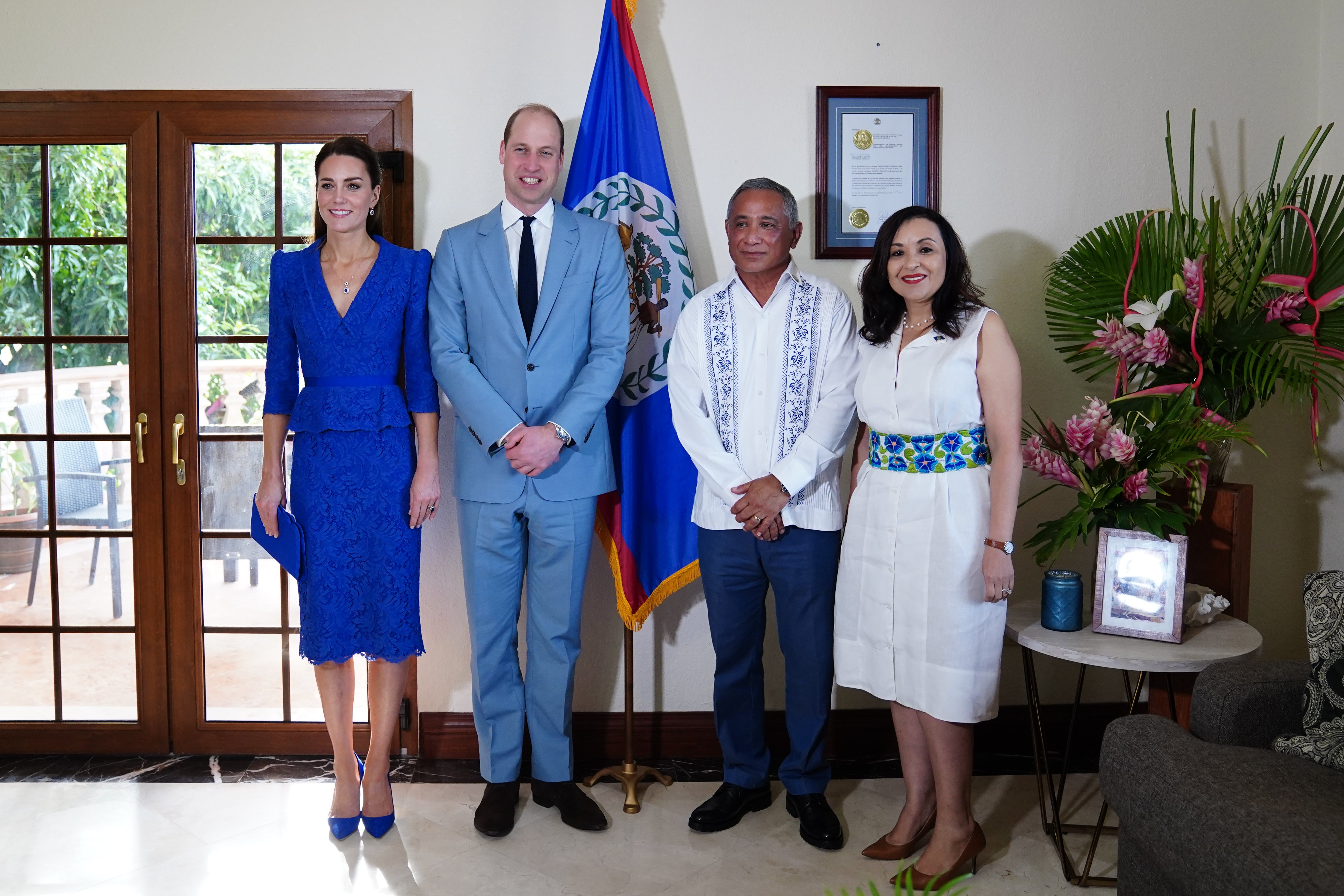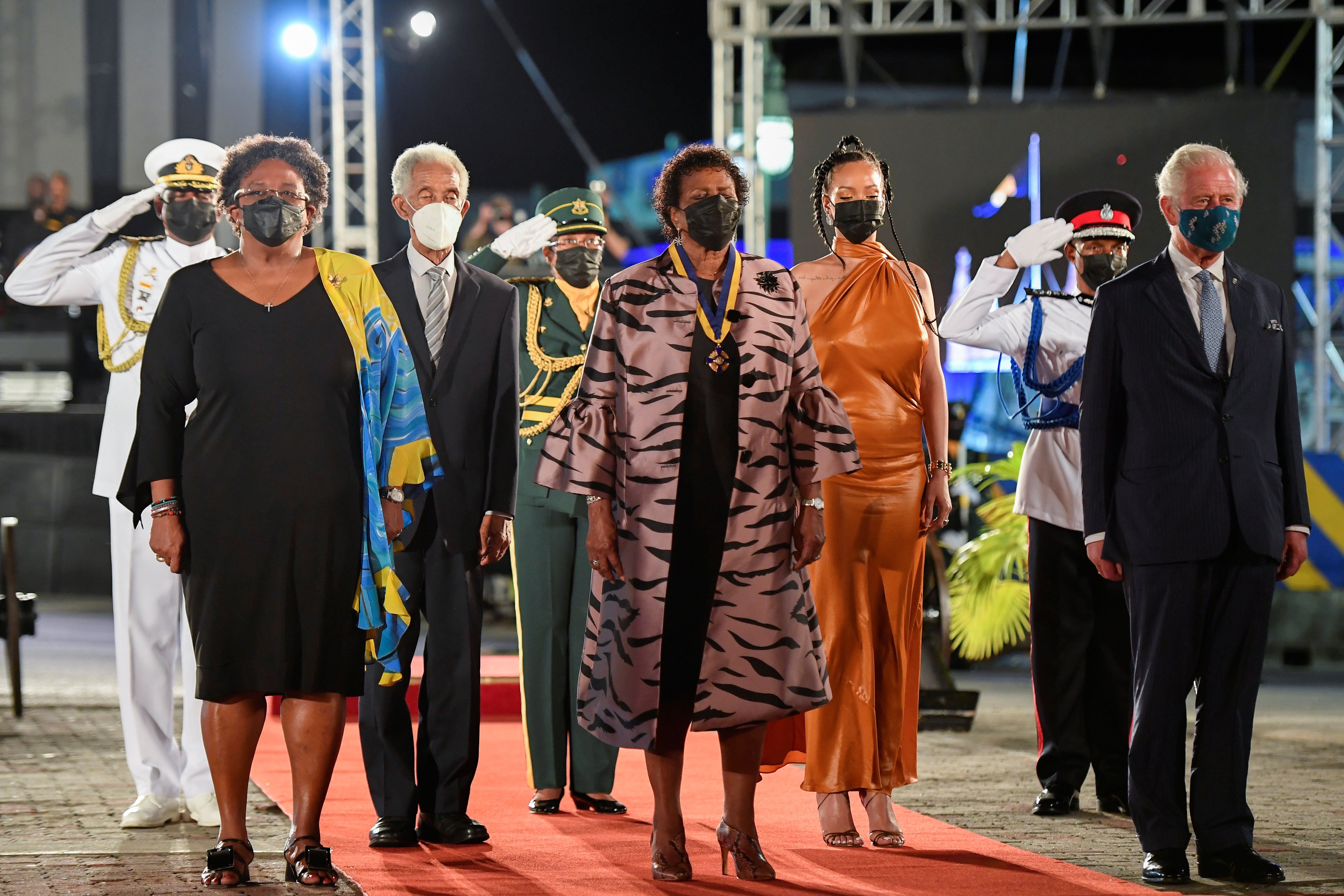Belize signals intention to remove Queen as head of state following royal visit
‘The decolonisation process is enveloping the Caribbean region - perhaps it is time for Belize to take the next step in truly owning our independence,’ a Belize government minister says

Your support helps us to tell the story
From reproductive rights to climate change to Big Tech, The Independent is on the ground when the story is developing. Whether it's investigating the financials of Elon Musk's pro-Trump PAC or producing our latest documentary, 'The A Word', which shines a light on the American women fighting for reproductive rights, we know how important it is to parse out the facts from the messaging.
At such a critical moment in US history, we need reporters on the ground. Your donation allows us to keep sending journalists to speak to both sides of the story.
The Independent is trusted by Americans across the entire political spectrum. And unlike many other quality news outlets, we choose not to lock Americans out of our reporting and analysis with paywalls. We believe quality journalism should be available to everyone, paid for by those who can afford it.
Your support makes all the difference.Belize has signalled its intention to remove the Queen as its head of state as Prince William and Kate’s Caribbean tour draws to a close.
This follows protests which took place during their visit to the northern Caribbean country following conflict about the “colonial legacy of theft” and land rights between local indigenous residents and Flora and Fauna International, the conservation charity William supports as patron.
Belize was the first leg of a three-country trip which ends today, and also took in Jamaica and the Bahamas.
Since the visit to Belize, the country’s government, led by prime minister, Johnny Briceno, has confirmed that the People’s Constitutional Commission, a new body, will be consulting across the country on the issue of continuing the “decolonisation process”.
Henry Charles Usher, minister for constitutional and political reform, reportedly told Belize’s parliament on Thursday: “Madame Speaker, the decolonisation process is enveloping the Caribbean region.
“Perhaps it is time for Belize to take the next step in truly owning our independence. But it is a matter that the people of Belize must decide on.”

The move by Belize to potentially become a republic is in keeping with a controversial tour which has focused on the post-colonial futures of the countries visited by the royal couple.
In Jamaica, prime minister Andrew Holness told Prince William and Kate that the country intends to become a republic amid protests across the island nation calling for the United Kingdom to pay reparations for slavery.
In an official meeting with the royals during their visit on Wednesday, Mr Holness said: “We’re moving on and we intend to … fulfil our true ambitions and destiny to become an independent, developed and prosperous country.”
Mr Holness later tweeted a statement, reiterating that his comments outlined plans to move towards removing the Queen as head of state.
This announcement came the day after The Independent exclusively reported that the Jamaican government had already begun the process of becoming a republic.
During a speech The Duke of Cambridge has implied that any decision by Jamaica, Belize and the Bahamas to decouple with the British monarchy will be supported with “pride and respect” by the UK.
Speaking at a reception hosted by the governor-general of the Bahamas, Cornelius A Smith, on Saturday, the future British king told guests, who included the country’s prime minister Philip Davis, that whatever the future holds the bonds between the UK and the nations will “endure”.
The duke said: “Next year, I know you are all looking forward to celebrating fifty years of independence – your golden anniversary.
“And with Jamaica celebrating 60 years of independence this year, and Belize celebrating 40 years of independence last year, I want to say this: we support with pride and respect your decisions about your future. Relationships evolve. Friendship endures.”

It follows the duke’s speech, delivered in Jamaica on Thursday, where he expressed his “profound sorrow” at the trafficking and enslavement of millions of people from Africa to the Caribbean and North America – a trade which British monarchs supported and profited from during the 17th and 18th centuries.
The address was criticised by campaigners as wholly inadequate and “tone-deaf” – a description that has been applied to much of the Cambridge’s Caribbean tour.
After the abolition of slavery in 1833, the British government took out a £20m loan to slave-owning families, for the inconvenience of not having the luxury of free labourers, bringing about a national deficit which was only repaid in 2015 with the help of taxpayers’ money.
On the other hand, to date, there has been no compensation paid to the descendants of enslaved Africans.
The Queen is head of state of 14 Commonwealth countries, almost all of which are former colonies of the British empire.
Barbados took the historic move of replacing the Queen as head of state in November, and elected its first president Dame Sandra Mason during a ceremony witnessed by the Prince of Wales.

Join our commenting forum
Join thought-provoking conversations, follow other Independent readers and see their replies
Comments